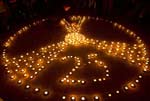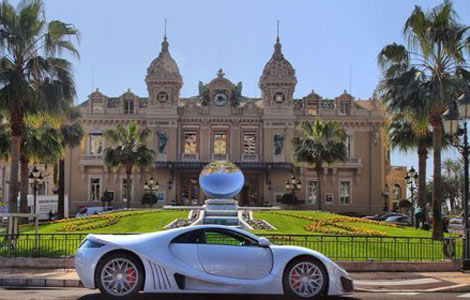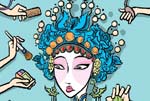Key business trinity
Updated: 2011-04-15 13:12
By Matt Hodges (China Daily European Weekly)
Chinese entrepreneurs are forging a new management model that could one day take over the world, says a leading French strategy consultant
 |
|
Charles-Edouard Boue advises European businesses |
Chinese entrepreneurs are forging their own business management model and Europeans coming to China should start adapting to it, argues Charles-Edouard Bouee in his new book, China's Management Revolution: Spirit, Land, Energy.
Former investment banker Boue, who brings five years of China experience to bear as president of Asia operations for Roland Berger Strategy Consultants, says the new model is a logical progression from the country's 30-year "American experiment".
He says it has nine distinctive characteristics and depends on the relationship between the land (the government), spirit (entrepreneurs) and energy (the people), but is otherwise difficult to explain because it is still in its infancy.
"It's like looking at a kid and trying to figure out the DNA," Bouee says. "But the trinity is very important. China is the only country in the world where all three are strong, because China is the last civilization nation."
Of his nine key terms, "flexible" and "spiritual" may be the most important.
"Flexible" refers to China's volatile and fast-changing business environment, which responds better to opportunistic tactics rather than long-term strategies. "Spiritual" reaches deep into China's history to chart the influence of Confucianism, Taoism and even Maoist thought on how the Chinese run their companies.
The other key qualities are: dynamic (keeping one's balance in the absence of equilibrium), adapted (respecting the rhythms and seasons of China's business environment), synthetic (absorbing elements from different cultures), mutual (linked to networking, guanxi and reciprocal obligations), consensual (everyone in agreement, from top down), disciplined and natural (emerging from the trinity of spirit, land and energy).
Bouee, who interviewed 10 leading Chinese CEOs for the book, says many Chinese companies face huge difficulties describing to foreigners how they operate.
"The CEO of Haier (Zhang Ruimin) said: 'The most interesting challenge for us is trying to explain to foreign managers our business model'," he says.
China's leading business schools are now integrating elements of this crystallizing model into their curriculums "empirically, as they encounter cases," says Boue, giving the examples of trade-sourcing site Alibaba and computer maker Lenovo.
"In less than 20 years, you will start to see management models outside of China copying the Chinese model," he says. "First, you will see less of (former General Electric CEO) Jack Welch, and more of (Apple's) Steve Jobs. Second, you will see more different ways of making decisions, more complex input and centralized decisions."
He says the days of Chinese infants dying from milk powder contaminated by industrial agents - as in the scandal involving Sanlu Group in 2008 - are drawing to a close.
"You can't get rich at the cost of society (anymore)," he says. "There is full transparency now. You cannot really hide. If you only have a good product for your customer, but you are not treating the people well, you are not interacting with the local community and the government, you will fail."
This trend is suggested by the fact that most of the entrepreneurs Boue features are trying to build family-oriented corporate cultures. Extreme example Zhang Yong, chairman of Haidilao Hotpot Company, even loses profit by renting instead of buying his properties so he can invest more money in his staff.
Bouee takes Beijing's hosting of the 2008 Olympic Games as a key turning point because it marked a turning point in the economic liberalism ushered in by former leader Deng Xiaoping in 1978 in the southern border town of Shenzhen.
"When I came to China (in 2006) people were already talking about the 'after oh-eight', because the government knew they were reaching the limit in terms of how many people can live the millionaire dream," Bouee says.
"So whether there was an Olympics or not, whether there was a (Sichuan) earthquake, whether there was all the traffic, 2008 was the end of the experiment. It was the end of the 30-year-cycle (the culmination of six of China's consecutive five-year plans)."
As banks and economies around the world creaked or collapsed under the weight of the subprime mortgage crisis, China was busy basking in Olympic glory and showcasing its ability to manage an event of such magnitude.
"The American experiment was a smart move, but what was really impressive was how the government anticipated its end," Bouee says.
"In April 2007 they were telling me that they were reducing loans to the south, because of all these crooks and entrepreneurs breaking the rules. So they were already, before any crisis happened, reducing the amount of oxygen to these guys, to kill the smaller ones, to stop all these crazy entrepreneurs, for example, exporting toys that are not safe, because this is not a sustainable model.
"One of the CEOs (in my book) told me, off the record, 'everyone who was supposed to be rich is already rich. Now it's time to clean up'."
One of the results of Deng's economic liberalism was the widespread adoption of the Harvard Business School model, as hundreds of thousands of "sea turtles" (Chinese who venture overseas to study) returned home armed with the message that "West is best".
Such sloganeering may have helped China witness 10 years of explosive double-digit growth, but it was never an easy fit with the Chinese way of getting things done.
Bouee sees the window closing on European companies hoping to enter China as the country grows less reliant on imported technology and expertise and makes strides in fields such as science and space exploration.
"The level of the game has increased. Before you got the tax breaks, you got a lot of incentives and the local clients were not very powerful," he says.
"Now the guy you are dealing with doesn't need you as much. Second, your advantage on the battlefield has been neutralized, or worse. Third, he's not even playing the same game anymore."
He advises foreign companies to track China's media for clues from government officials as to where policy is heading.
"If you summarize the objectives of the government's 12th Five-Year Plan (2011-2016), they are health and well-being. It's very clear. And it really fits this model. All members of the trinity are working in the same interests," he says.
"So (foreign) companies need to ask themselves the question, 'Am I good for China? Is China waiting for me?' They need to really understand what China is, from all these ingredients, and make sure they fit, which is why I say, invest in health and well-being."
For Bouee, who flaunts a Gallic love for baroque forms of self-expression, the message to foreign entrepreneurs is loud and clear.
"We're not shaping the wave anymore, the trinity is. We can only surf it, and try to stay on balance, because it's going very fast. It's a really big wave, made for a very good surfer, a local guy."
E-paper

Image maker
French art curator helps organize one of China's biggest photography events.
Preview of the coming issue
Reaching out
Fast growth fuels rise in super rich
Specials

25 years after Chernobyl
Belarus, Ukraine and Russia will mark the 25th anniversary of the nuclear reactor explosion in Chernobyl.

Luxury car show
The world's most prestigious luxury, sports cars and supercars are displayed in Monaco.

Peking Opera revival
Traditional opera is enjoying a revival in Beijing thanks to some modern touches.
